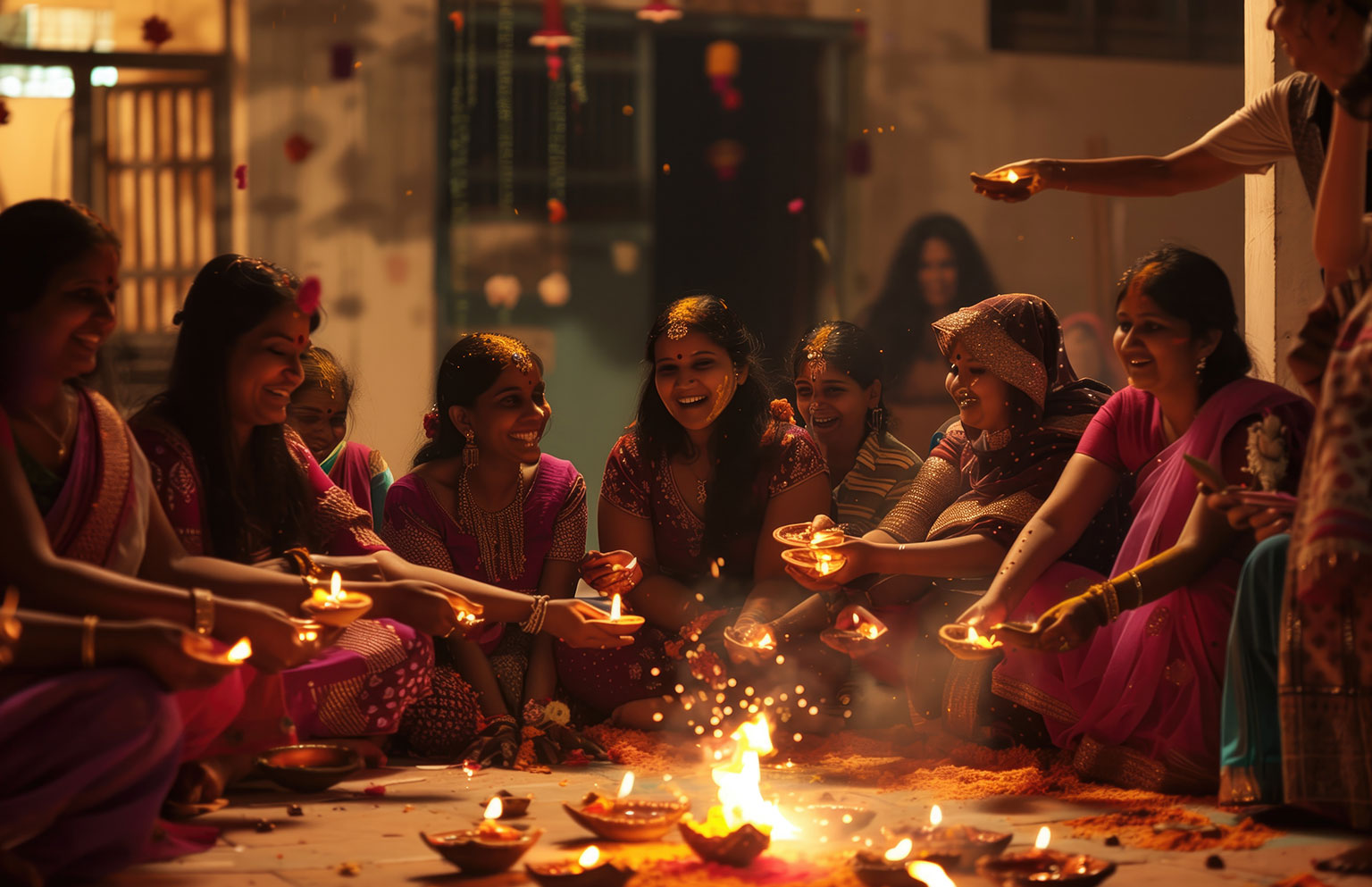
Sanatan Dharma, often referred to as Hinduism, is not just a religion but a way of life that encompasses a rich tapestry of traditions, rituals, and celebrations. Among the most vibrant aspects of this faith are its festivals, which are deeply intertwined with its philosophy, mythology, and cultural practices. Each festival serves as a reminder of the eternal values that Sanatan Dharma upholds, making them not just occasions for celebration, but also opportunities for reflection and renewal of faith.
1. Diwali: The Festival of Lights
One of the most widely celebrated festivals in Sanatan Dharma, Diwali, symbolizes the victory of light over darkness and good over evil. Celebrated over five days, this festival involves the lighting of lamps (diyas), decorating homes, exchanging sweets, and performing prayers to Goddess Lakshmi, the deity of wealth and prosperity. The night of Diwali is marked by the worship of Lord Ganesha and the return of Lord Rama to Ayodhya after his exile, making it a celebration of hope, joy, and new beginnings.
2. Holi: The Festival of Colors
Holi, the festival of colors, marks the arrival of spring and the triumph of love and devotion. The celebration begins with Holika Dahan, a ritual symbolizing the victory of devotion over evil, followed by a joyous day of throwing colored powders and water. Holi fosters a spirit of unity, forgiveness, and love, as people come together to celebrate, irrespective of social status or background.
3. Navaratri: The Nine Nights of Worship
Navaratri is a nine-night festival dedicated to the worship of Goddess Durga, representing the divine feminine energy. Each night is associated with a different form of the goddess, culminating in Dussehra, which signifies the victory of Goddess Durga over the buffalo demon Mahishasura. Navaratri is celebrated with vibrant dance forms like Garba and Dandiya, fasting, and devotion, uniting communities in celebration of the divine.
4. Raksha Bandhan: Celebrating Bonds of Love
Raksha Bandhan is a heartwarming festival that celebrates the bond between brothers and sisters. Sisters tie a protective thread (rakhi) around their brothers’ wrists, symbolizing love and protection, while brothers vow to safeguard their sisters. This festival not only strengthens familial ties but also highlights the importance of love, duty, and respect within relationships.
5. Makar Sankranti: Harvest Festival
Makar Sankranti marks the transition of the sun into the zodiac sign of Capricorn, signaling the end of winter and the arrival of longer days. Celebrated with enthusiasm across India, this festival is associated with harvest and prosperity. People prepare traditional foods, fly kites, and engage in community feasts, embodying the spirit of gratitude and abundance.
6. Pongal: A Celebration of Harvest in South India
In South India, Pongal is a significant harvest festival celebrated over four days, honoring the Sun God and the agricultural community. The festival involves cooking a special dish, also called Pongal, made from freshly harvested rice, and is accompanied by rituals of gratitude and family gatherings. It highlights the connection between humans and nature and the importance of sustainable living.
7. Janmashtami: The Birth of Lord Krishna
Janmashtami celebrates the birth of Lord Krishna, one of the most revered deities in Sanatan Dharma. Devotees observe fasting, engage in singing bhajans (devotional songs), and reenact scenes from Krishna’s life. The midnight hour, believed to be the moment of Krishna’s birth, is marked with joy and devotion. This festival emphasizes the themes of love, mischief, and divine play, encouraging followers to embrace joy and spirituality.
Conclusion
The festivals of Sanatan Dharma are not merely celebrations; they embody profound spiritual significance and serve as a means to reconnect with one’s cultural roots. Each festival, rich with its own traditions and stories, offers an opportunity for self-reflection, community bonding, and the renewal of one’s spiritual commitment. As we celebrate these vibrant festivals, we are reminded of the eternal values of love, compassion, and unity that Sanatan Dharma promotes. Embrace the spirit of these celebrations, and let them inspire you to live a life rooted in joy, gratitude, and devotion.
